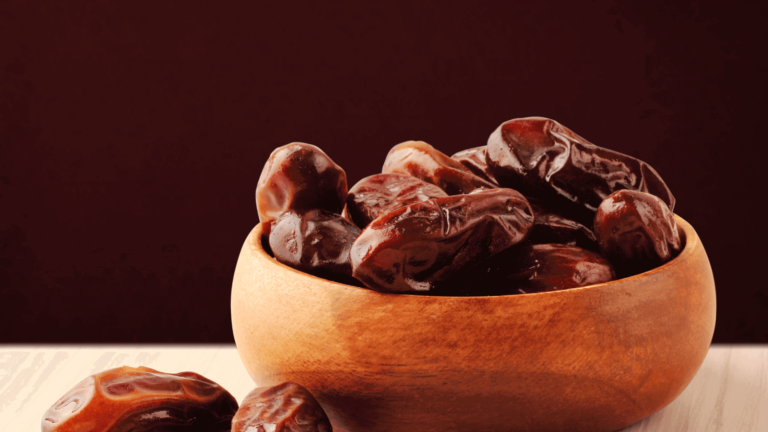Embracing The Health Benefits Of Natural Sweeteners : 9 Refined Sugar Alternatives:

Natural sweeteners, like stevia and honey, offer a guilt-free indulgence, satisfying our cravings without the harmful effects of refined sugar. Embrace the sweetness of nature and unlock a healthier, more wholesome way to satisfy your sweet tooth.
White sugar quickly enters the bloodstream after consumption and is digested, resulting in sharp rises in blood sugar levels. Because of how it’s processed, it contains chemicals used to make it white and free of contaminants in addition to being stripped of whatever nutrition sugar cane or sugar beets would naturally have.
Thankfully, nature provides a number of respectable refined sugar replacements, many of which are absorbed into the bloodstream more gradually and contain a number of critical nutrients. Although these Natural Sweeteners are natural, it’s important to remember that consuming too much of them could still have a negative impact on your health. Learn about our eight natural sweeteners that are better for you than sugar!
The Top 9 Natural Sweeteners

1. Stevia
The best natural sugar alternatives are led by stevia. Although it is hundreds of times sweeter than sugar, it has no calories. Studies have shown that stevia can help diabetics since it doesn’t elevate blood glucose or insulin levels like sugar, thanks to its special properties. The two most popular forms of stevia are dried leaves and powder.
2. Monk fruit ( or Siraitia grosvenorii )
Monk fruit, which is indigenous to Southeast Asia, is now used frequently in place of sugar. It has a consistency similar to granulated sugar, has no calories, and doesn’t produce unexpected blood sugar increases. Mogrosides, substances contained in monk fruit, may have antioxidant and anti-inflammatory activities, according to a preliminary study.
3. Honey
With over 8,000 years of use, honey is arguably the most well-known natural sweetener in the world. The enzymes, vitamins, and minerals included in raw honey are what give it its antibacterial, antioxidant, and anti-inflammatory qualities. Remember that most of the health advantages of honey have been destroyed during pasteurization.
4. Maple Syrup
Maple syrup is a different well-liked substitute for sugar. It is made from the sap of the maple tree and is rich in minerals including calcium, zinc, and potassium as well as antioxidants. Read the labels to be sure you’re purchasing pure maple syrup, preferably one that is dark in color, rather than maple-flavored syrups, which are essentially sugar syrups with flavoring added.
Related: What Happens If You Stop Eating Sugar For 14 Days
5. Carob
Carob is frequently used as an alternative to chocolate. This is so that naturally bitter cacao can be made sweet by combining it with a lot of sugar. Contrarily, carob has a taste that is akin to chocolate and is naturally mildly sweet, which helps many recipes avoid using additional sugar. Carob’s soluble fiber may also be advantageous to diabetics.
6. Yacon Syrup
The benefits of yacon are attributed to its inulin and fructooligosaccharides, which are found in this Andean tuber. They’ve been demonstrated to lower blood sugar levels and encourage the development of good bacteria in the gut. The syrup tastes similar to caramel and has a low glycemic index.
7. Dates
Dates provide a great and adaptable sugar alternative. They have a low glycemic index and are nutrient- and fiber-rich. As a result, they might aid in controlling weight and blood sugar levels. Dried dates, date syrup, and date sugar are just a few of the date-based products on the market that can take the place of refined sugar.
8. Blackstrap molasses
Blackstrap molasses must be included on the list of healthy sugar substitutes. It is a byproduct of sugar cane production and is a good source of iron, calcium, and vitamin B6. It is a useful sweetener for regulating blood sugar levels since it has a low glycemic index. The flavor of blackstrap molasses is intensely sweet and slightly bitter.
9. Balsamic Glaze
Balsamic Glaze is full of antioxidants that fight free radicals and pepsin, an enzyme that supports a healthy digestive system and has a delicious flavor.
Using balsamic glaze:
Although gourmet and natural food stores sell balsamic glazes, you may easily make your own glaze at home. Simply reduce two cups of balsamic vinegar to one-half cup by simmering them over low heat while stirring often.
The duration of this process can range from 15 to 30 minutes. When it cools, it will become even more thick.
To add a natural sweetness and a hint of tang, drizzle the glaze over grilled wild-caught salmon, raw cheese, or even fresh berries.
Additional Thoughts
Fruits are a fantastic example of natural sweeteners. They are among the most adaptable foods available, naturally sweet, and stuffed with vitamins and other healthy ingredients.
Ripe bananas pureed can be used to sweeten puddings and muffins. Pancakes and waffles can benefit from a little sweetness from apple sauce. Fruit juices that have just been freshly squeezed provide excellent bases for other dishes and refreshing drinks.
Experts concur that removing all sugar from one’s diet is not required. Utilizing healthier, less processed sweeteners that nevertheless retain vital nutrients and provide some health advantages while using sugar sparingly is a preferable strategy. While you’re at it, you might get the idea to switch out the white flour in your favorite recipes for healthier, gluten-free flour.






